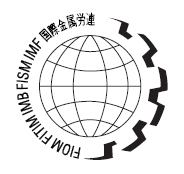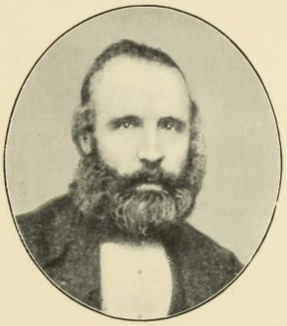Related Research Articles

The International Metalworkers' Federation (IMF) was a global union federation of metalworkers' trade unions, founded in Zürich, Switzerland in August 1893. As of 2009, the IMF had more than 200 member organisations in 100 countries, representing a combined membership of 25 million workers.
Community is a British trade union which formed in 2004. The union represents workers in a diverse range of sectors, including iron and steel, justice and custodial, domestic appliance manufacturing, textiles and footwear, road transport, betting, the third sector, education and early years as well as the self-employed.
International Molders and Foundry Workers Union of North America was an affiliated trade union of the AFL–CIO. The union traced its roots back to the formation of the Iron Molders' Union of North America, established in 1859 to represent craftsmen who cast wrought iron metal products. It is now part of the GMP International Union.

The European Metalworkers' Federation (EMF), founded in 1971, is a federation of 68 metalworkers' unions from 31 countries, representing a combined total of 6.5 million affiliates. It is based in Brussels, Belgium, the general secretary is Ulrich Eckelman and Bart Samyn is the Deputy General Secretary. The organisation was dissolved on 15 May 2012, to become a part - together with EMCEF and ETUF-TCL - of the newly created organisation industriAll European Trade Union on 16 May 2012

William H. Sylvis (1828–1869) was a pioneer American trade union leader. Sylvis is best remembered as a founder of the Iron Molders' International Union. He also was a founder of the National Labor Union. It was one of the first American union federations attempting to unite workers of various crafts into a single national organization.

IndustriALL Global Union is a global union federation, founded in Copenhagen on 19 June 2012.
An iron founder in its more general sense is a worker in molten ferrous metal, generally working within an iron foundry. However, the term 'iron founder' is usually reserved for the owner or manager of an iron foundry, a person also known in Victorian England as a 'master'. Workers in a foundry are generically described as 'foundrymen'; however, the various craftsmen working in foundries, such as moulders and pattern makers, are often referred to by their specific trades.
The Federated Moulders' (Metals) Union of Australia (FMMUA) was an Australian trade union which existed between 1899 and 1983. It represented moulders – skilled tradesmen who fabricated the moulds for casting metal products in foundries. In spite of only organising within a single skilled occupation, which kept total membership low, the vital position of moulders in major industries such as mining, manufacturing and the railways, ensured that the union remained industrially powerful with a reputation for being highly militant.
The Amalgamated Union of Foundry Workers (AUFW) was a trade union representing workers in foundries in the United Kingdom.
The National Union of Foundry Workers (NUFW) was a trade union representing workers in foundries in the United Kingdom.

The Friendly Society of Iron Founders of England, Ireland and Wales (FSIF) was an early trade union representing foundry workers in the United Kingdom.

The Associated Iron Moulders of Scotland (AIMS) was a trade union representing foundry workers in Scotland.
The Ironfounding Workers' Association was a trade union representing foundry workers in the United Kingdom, principally in Scotland.

Daniel Guile was a British trade unionist.
The Amalgamated Moulders and Kindred Industries Trade Union was a trade union representing semi-skilled moulders in the United Kingdom.
The International Federation of Petroleum and Chemical Workers (IFPCW) was a global union federation bringing together trade union representing workers in the chemical and oil industries.
The Norwegian Union of Foundry Workers was a trade union representing workers in metal foundries in Norway.
The Amalgamated Engineering Union of South Africa (AEU) was a trade union representing white manufacturing workers in South Africa.
The Iron Moulders' Society of South Africa (IMS) was a trade union representing metalworkers in South Africa.
The International Brotherhood of Foundry Employees (IBFE) was a labour union representing foundry workers in the United States and Canada.
References
- 1 2 Fryth, H. J.; Collins, Henry (1950). The Foundry Workers. Manchester: Amalgamated Union of Foundry Workers.
- ↑ Rütters, Peter (2001). International Trade Union Organisations (PDF). Bonn: Friedrich-Ebert-Stiftung. p. 18. ISBN 3898920453 . Retrieved 26 September 2019.
- ↑ Mitchell, James P. (1959). The International Metalworkers Federation. Washington DC: US Department of Labor. pp. 15–19.